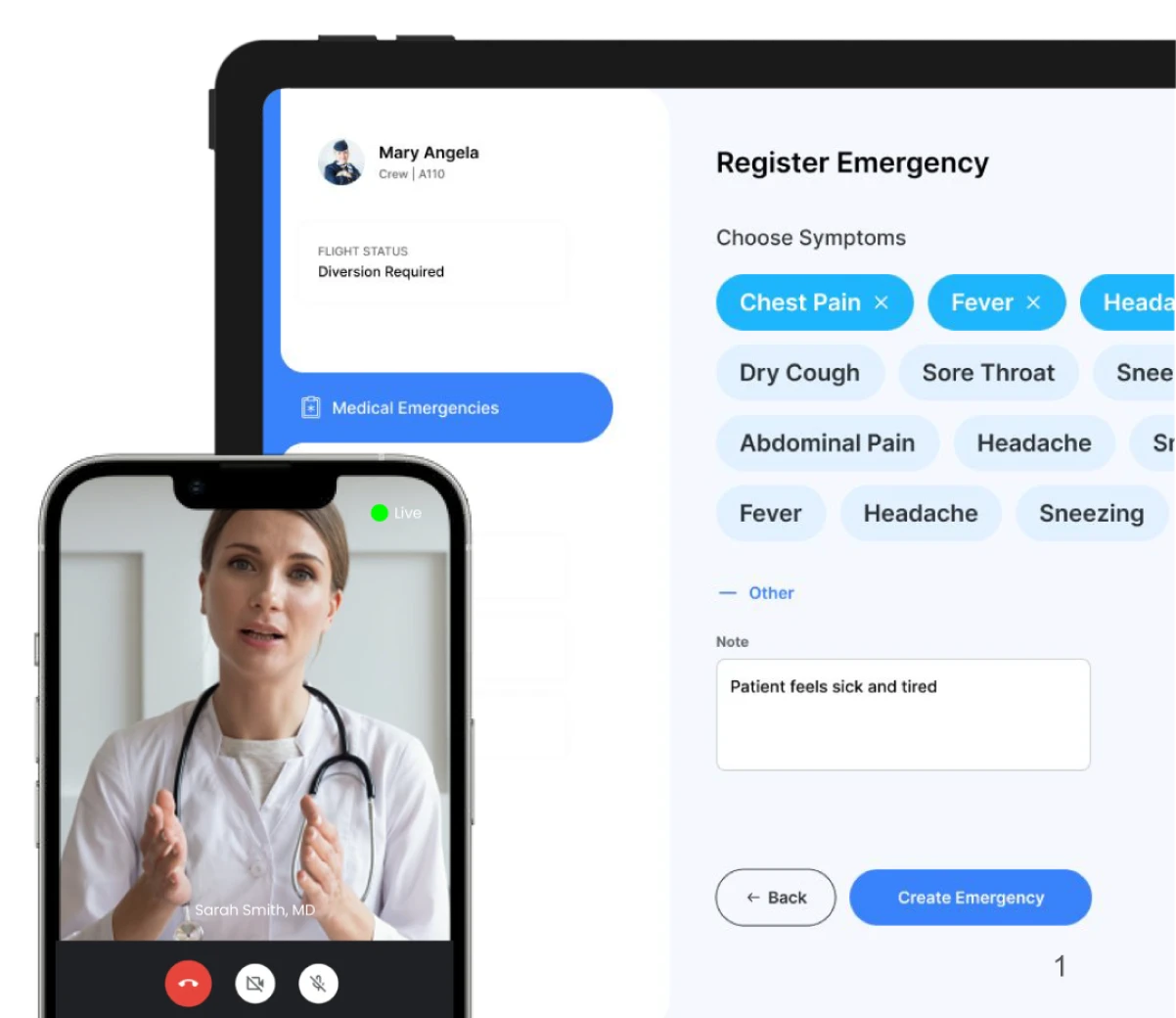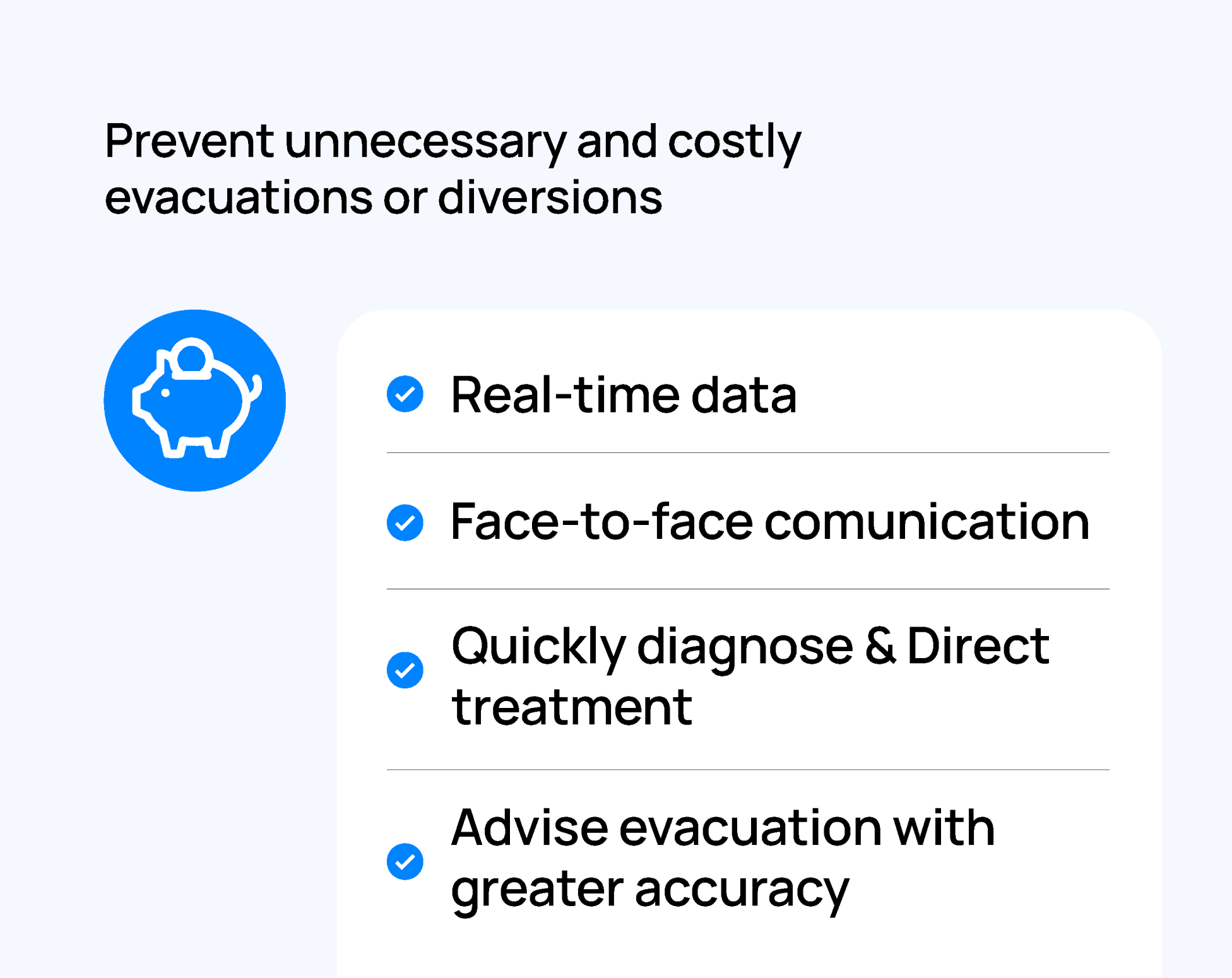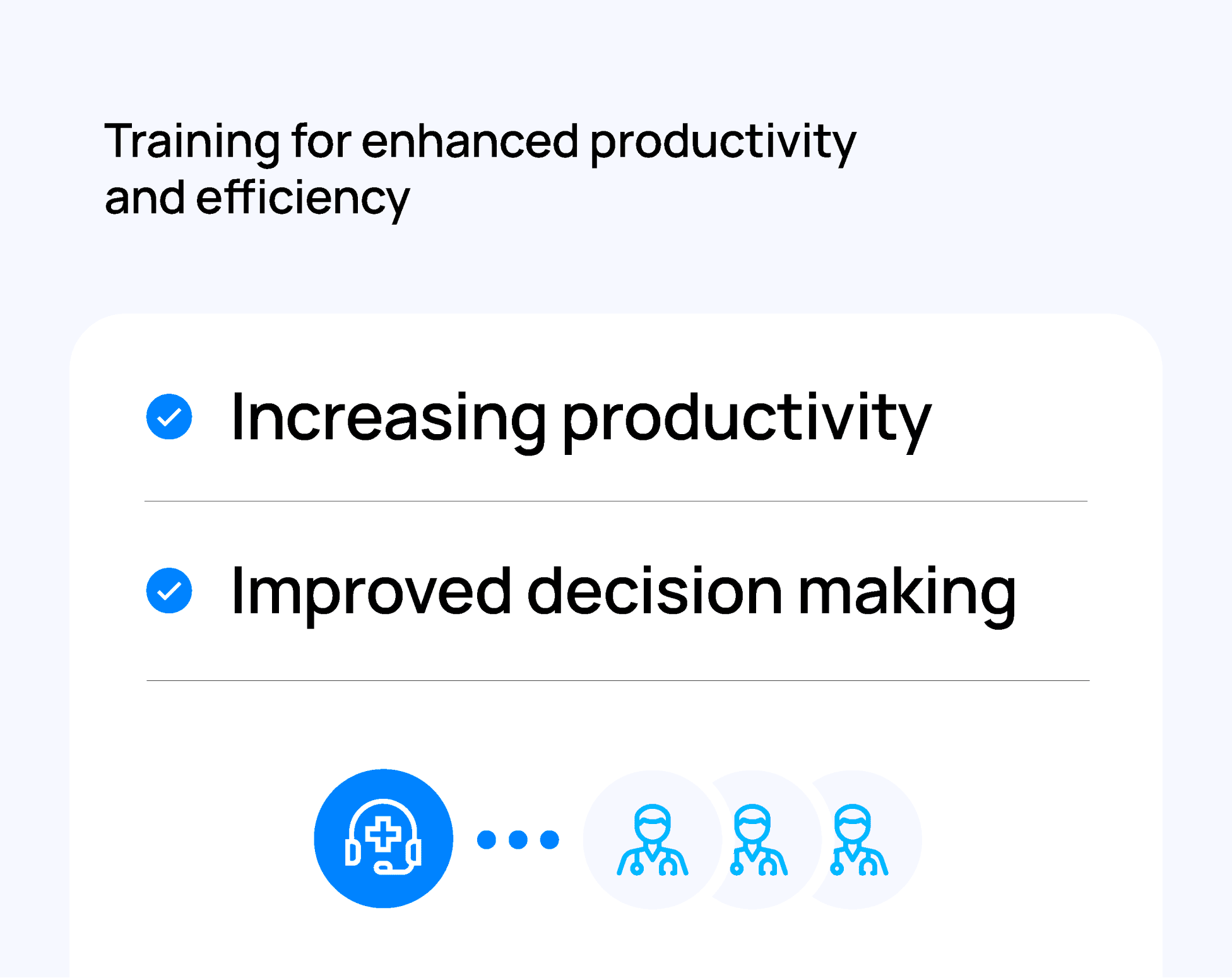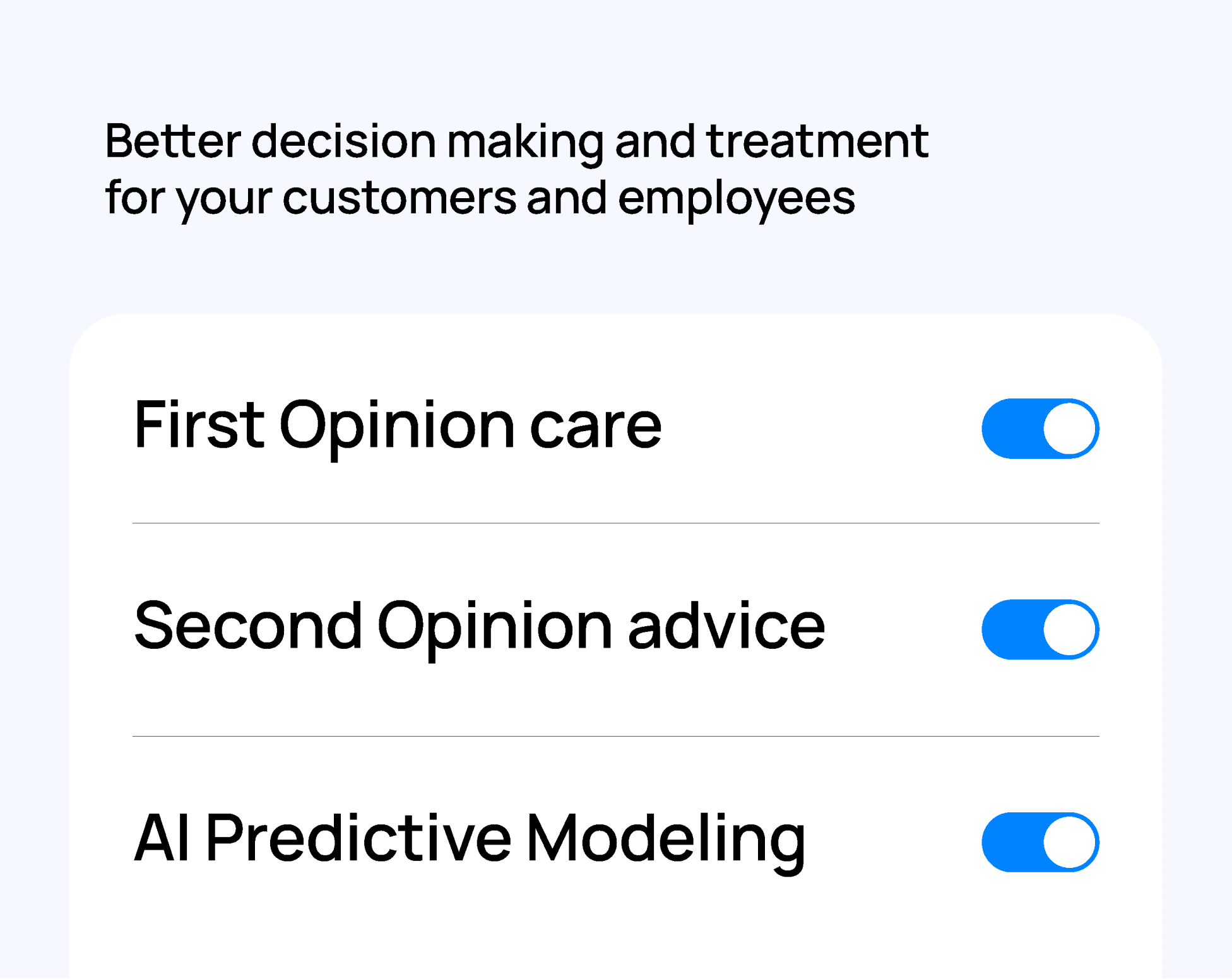
SKALI FOR MARITIME
Making maritime vessels safer Saving millions in costs
Now you can better handle medical emergencies, save lives and avoid unnecessary operational costs.
TESTIMONIALS



WHY SKALI FOR MARITIME VESSELS
Reduce risks and costs
on your vessels

Deploys seamlessly on existing infrastructure

Device agnostic

Works at extremely low bandwidths
Cost Savings
Prevent unnecessary and costly evacuations or diversions by making more informed decisions using the best in emergency medical communication. Our emergency-trained physicians can use real-time data and face-to-face communication to quickly diagnose, direct treatment, or advise evacuation with greater accuracy. This leads to direct cost savings for the company in transportation and medical costs, and better health outcomes for the worker, which leads to indirect cost savings in the long term.

Efficency
While most freighters and tankers (and even super yachts) will maintain the presence of a medical staff, such personnel currently require recurring emergency medical training. By relying on Skali, you can alleviate some of these requirements. As many medics on site also fill multiple roles, they will have more time and freedom to devote to those other tasks. This all adds up to improved workforce utilization, increasing productivity. If the improved decision making can prevent an unnecessary return to port, your operational efficiency will dramatically improve as well.

Safety
Skali’s physicians can provide First Opinion care such as reading X-ray or electrocardiogram (EKG) results, or Second Opinion advice to help determine if a case is an emergency, the level of urgency, or the need for evacuation or return to port. This results in better decision making and treatment, directly improving health outcomes for your customers and/or employees.
Additionally, our proprietary system is developed to securely store all data relating to medical injuries and illnesses, analyze such data, and provide detailed reports and predictive modelling to aid in mitigating or properly preparing for future events.

The new standard in remote emergency medical assistance has arrived
